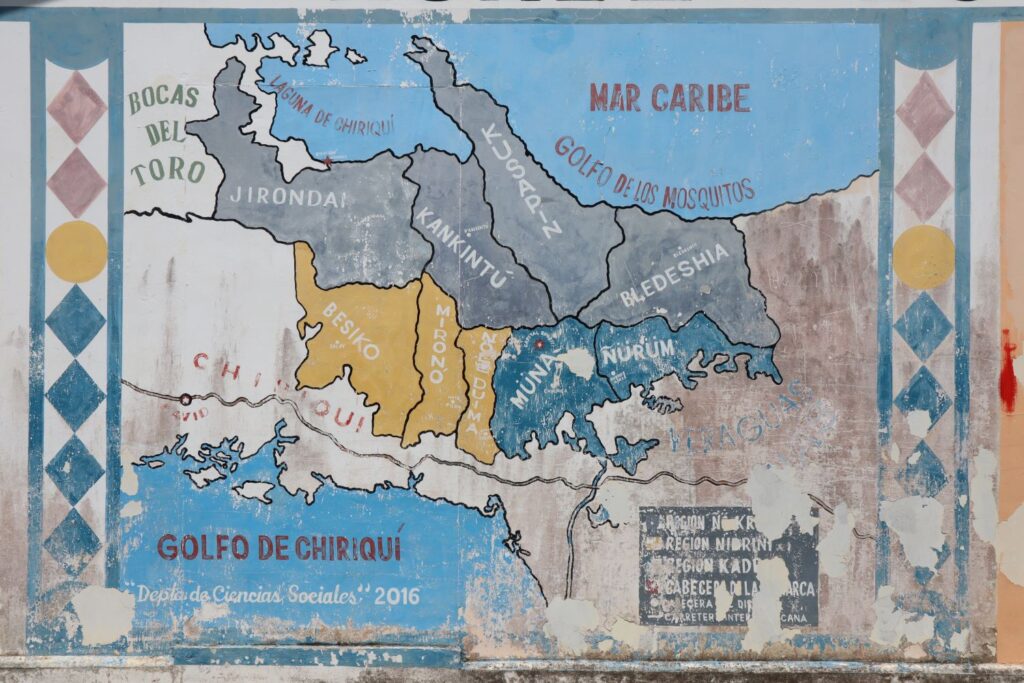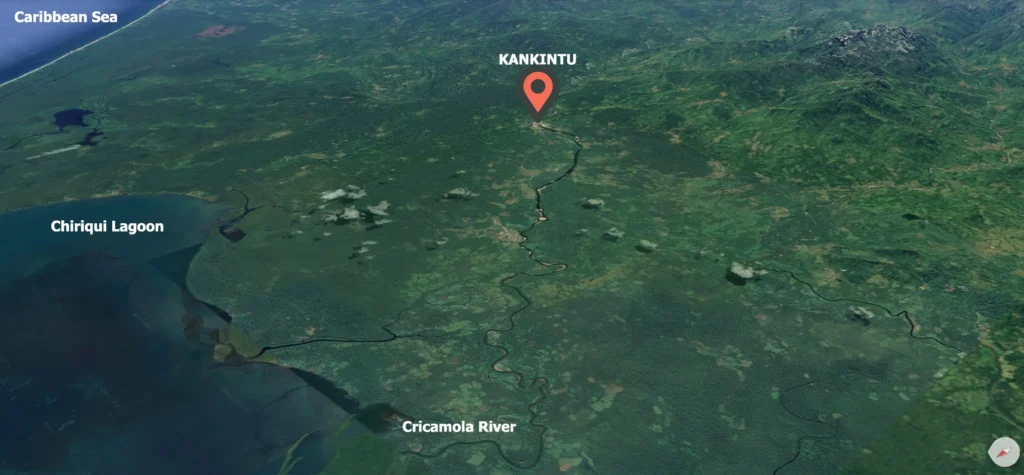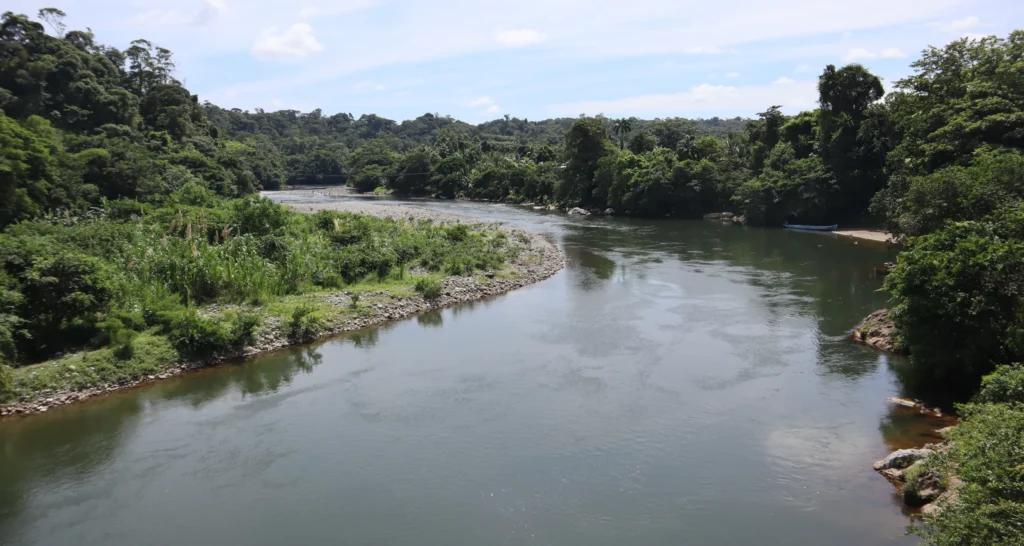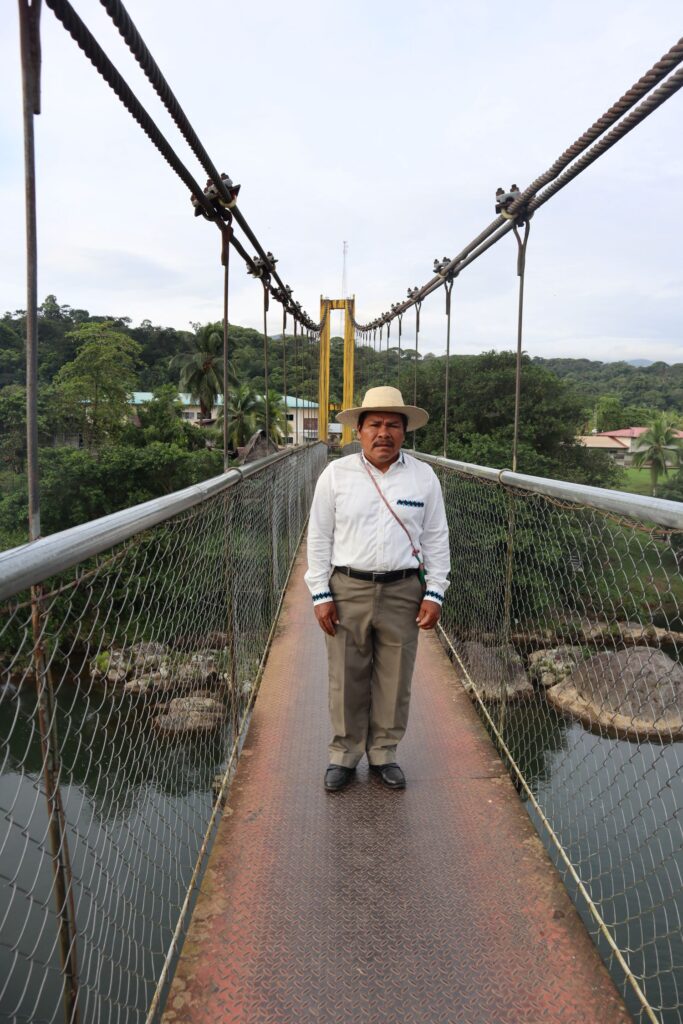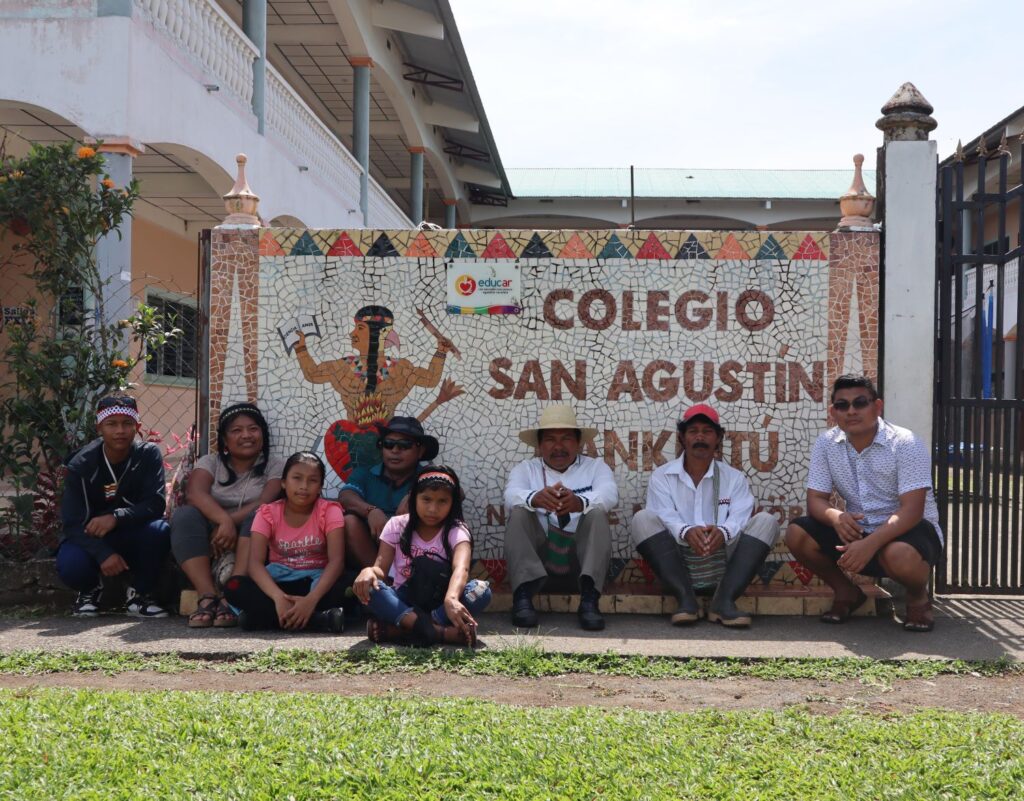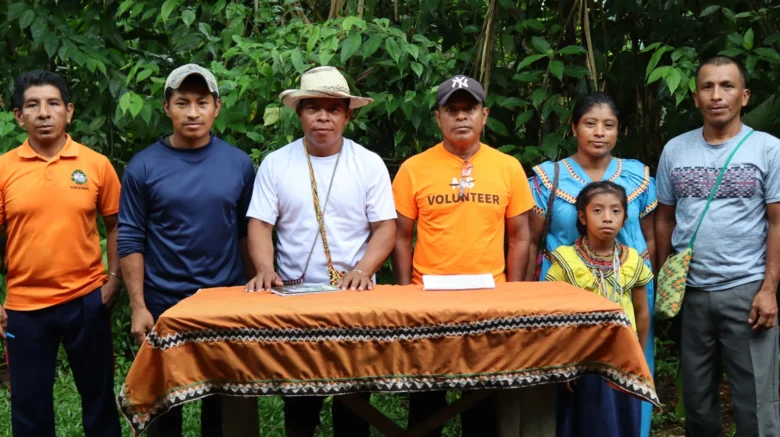Kankintú y Norte de Santa Fe Enfrentan Desafíos por Proyectos de Infraestructura a Gran Escala
La forma de vida en términos generales es sobre de las de la agricultura sostenible en la utilización del de la madre tierra en una diversidad de cultivos tradicionales que le dan vida a todos los moradores. Esa es un en común para toda la zona indígena.
Nuestro pueblo es de lucha y la lucha indígena de los pueblos originarios está amparada por el poder sagrado, el poder de Dios creador y señor, de toda la naturaleza, nos queda un reto interno a nosotros unificar las ideas por el bien social y resistir bajo las manipulaciones y las estos del gobierno, resistir de por vida en el pueblo indígena.
— Saturnino
Una importante iniciativa de infraestructura gubernamental—la Cuarta Línea de Transmisión—representa una amenaza para nuestras comunidades Ngäbe y Buglé en el distrito de Kankintú de la Comarca Ngäbe-Buglé y en Norte de Santa Fe, provincia de Veraguas. Este proyecto propuesto, financiado en parte por la Corporación Financiera Internacional (IFC) del Banco Mundial, tiene como objetivo construir una línea eléctrica de 300 kilómetros a lo largo de la costa atlántica de Panamá. La línea de transmisión cruzará nuestros territorios ancestrales y algunas de las últimas selvas tropicales vírgenes que quedan en Panamá. Nos preocupa especialmente la infraestructura asociada, que incluye minas, represas y carreteras.
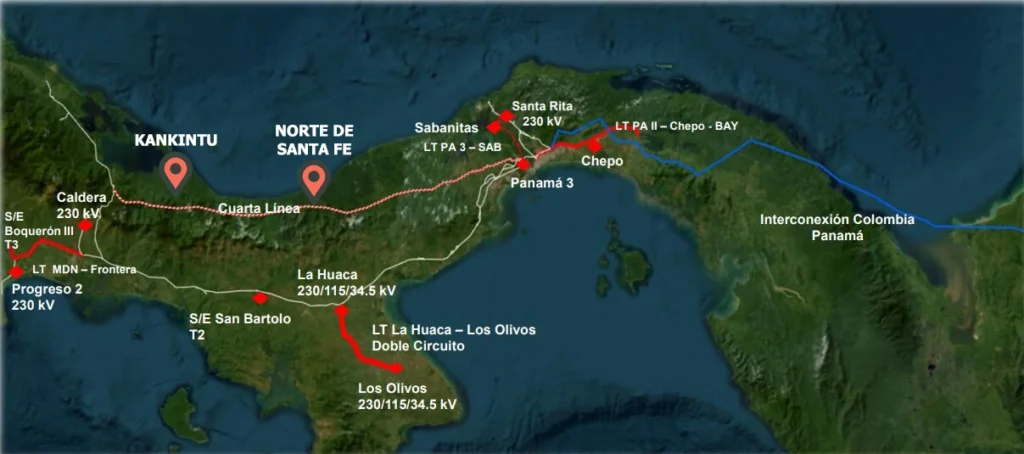
Nuestras comunidades Ngäbe y Buglé han habitado territorios tradicionales en el occidente de Panamá durante miles de años. Sin embargo, se nos ha excluido de los procesos de consentimiento libre, previo e informado en relación con proyectos que afectan a nuestro territorio. Nuestro gobierno no ha reconocido nuestros derechos colectivos a la tierra, protegidos por la Declaración de las Naciones Unidas sobre los Derechos de los Pueblos Indígenas.
En apoyo de la Organización Territorial de Ngäbe, Buglé y Campesinos de la Comarca Norte de Santa Fe, MODETEAB llevó las preocupaciones de las comunidades al Ombudsman Asesor en Cumplimiento (CAO) de la CFI. Su investigación de nuestras quejas reveló que la CFI no se había adherido a su propia política de sostenibilidad, pero el proyecto sigue adelante.
Pero todos los proyectos que vienen de afuera, hemos estado en contra de todos los proyectos porque realmente los proyectos que vienen a causar en nuestro territorio, vamos a sufrir el despojo.
El gobierno a veces ha dicho que se va a terminar la pobreza, pero terminando la pobreza, van a matar a todos nosotros quitándonos nuestra tierra, quitando nuestra cultura, quitando nuestra vivencia de vida, nuestra forma de alimentación ya seremos muerto porque todas las chatarras que vienen de afuera, la alimentación para los niños ya no es lo mismo. Por eso es la preocupación como madre, como mujer ya nuestra familia no va a tener una alimentación saludable como la que tenemos todavía ahora.
— Rosa
Norte de Santa Fe, provincia de Veraguas
Norte de Santa Fe forma parte del distrito de Santa Fe, en la provincia de Veraguas. La región abarca las altas y frías montañas de la Cordillera Central de Panamá y las húmedas tierras bajas de su costa caribeña.
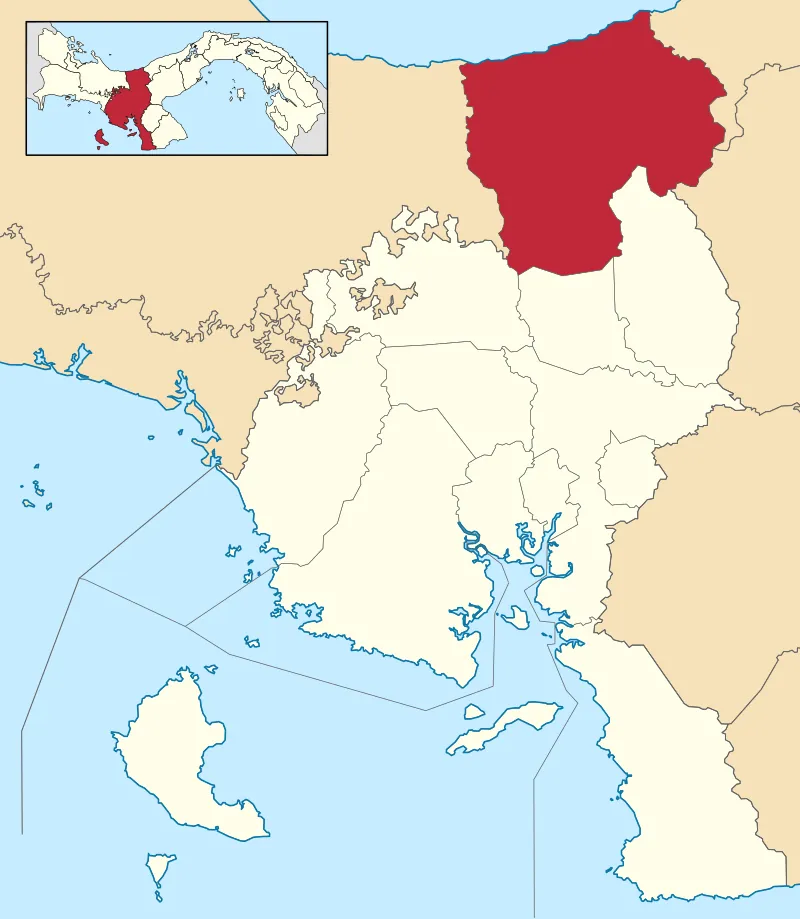
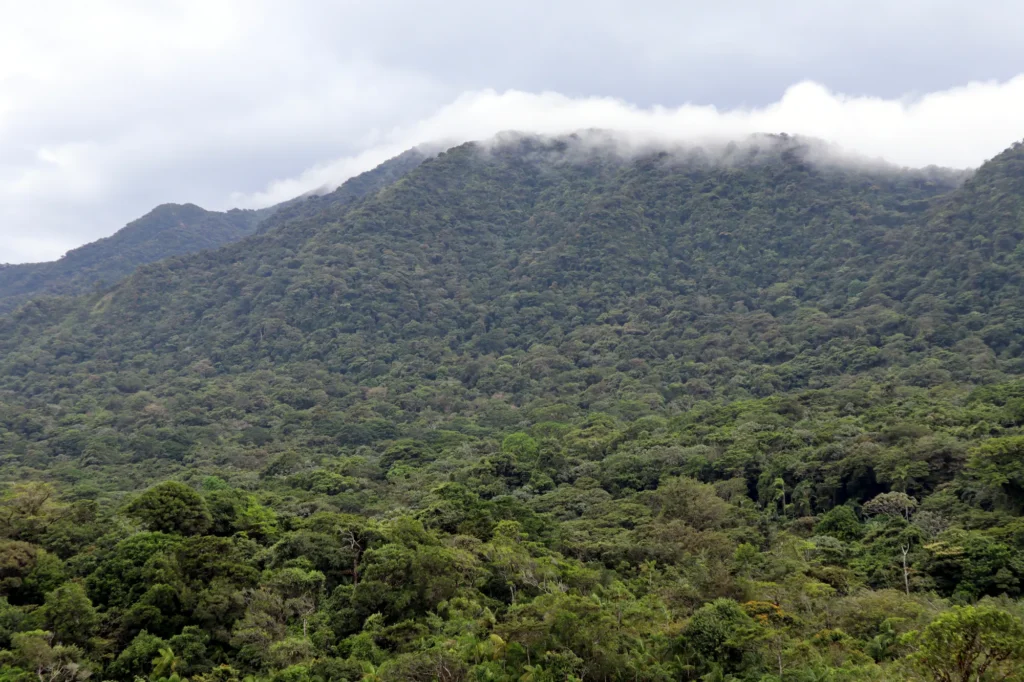
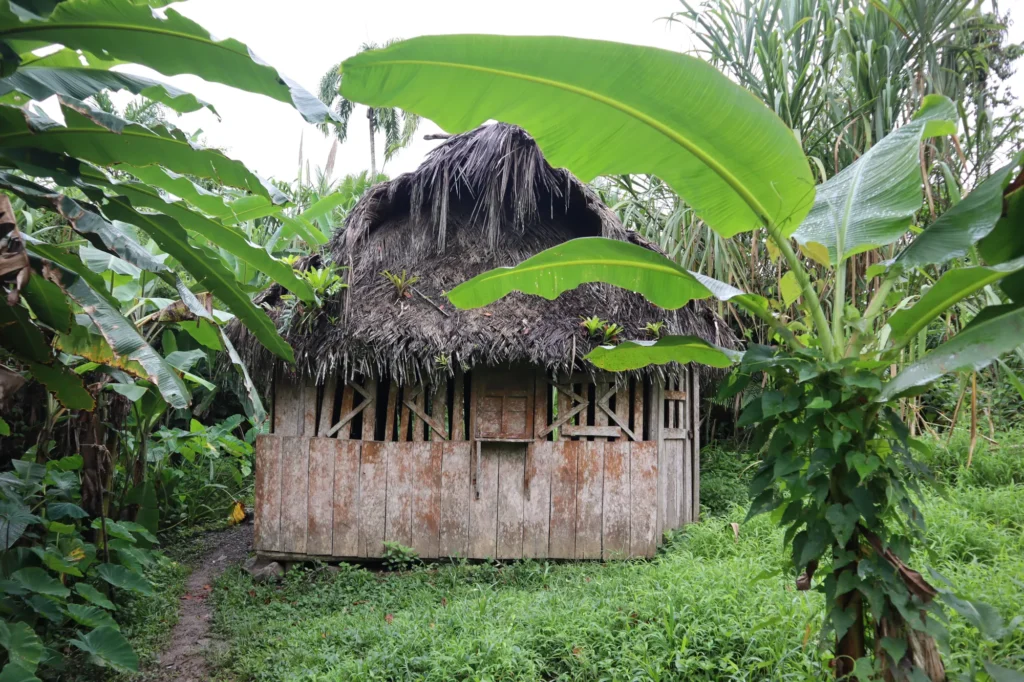
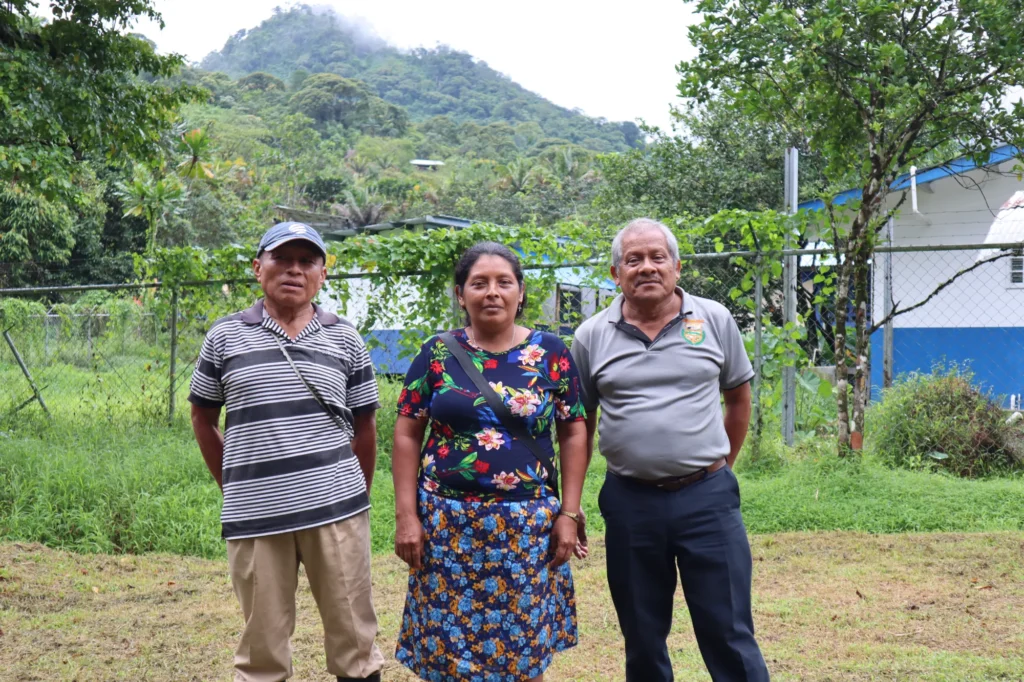
Kankintú, Comarca Ngäbe-Buglé
Kankintú se refiere tanto a una ciudad como a un distrito de la Comarca Ngäbe-Buglé.
